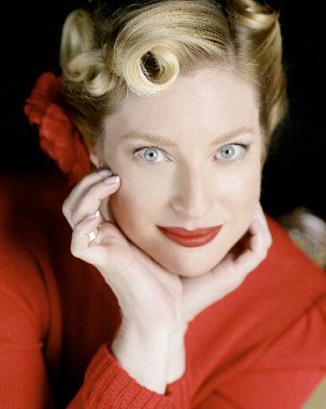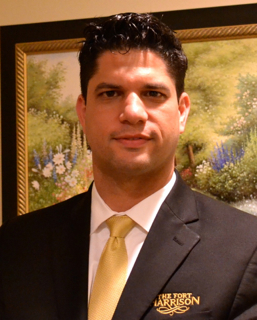The Modern Butlers’ Journal
January 2018
In its 14th year of continuous publication
International Institute of Modern Butlers
Teaching Right Mindset, People Skills, & Superior-service Expertise
Message from the Chairman
 Having proclaimed for decades that Remains of the Day must be the best film ever made, I finally read the book upon which it was based. A masterful piece of writing that perfectly captures the mindset of the old-world butler, and which in turn is perfectly captured in the movie. A couple of points were changed in the movie (e.g. the American Lewis is inexplicably transformed from a cad in the book to somewhat of a hero in the movie—was the underwriter of the movie an American?), but otherwise, the movie remained faithful to the book, right down to the verbatim dialogue.
Having proclaimed for decades that Remains of the Day must be the best film ever made, I finally read the book upon which it was based. A masterful piece of writing that perfectly captures the mindset of the old-world butler, and which in turn is perfectly captured in the movie. A couple of points were changed in the movie (e.g. the American Lewis is inexplicably transformed from a cad in the book to somewhat of a hero in the movie—was the underwriter of the movie an American?), but otherwise, the movie remained faithful to the book, right down to the verbatim dialogue.
What struck me most about the book was how much pusillanimity (cowardice) underlay the decorum exhibited so unfailingly by Mr. Stevens, the butler. “Pusillanimity” is a tongue-twister that derives from Greek, meaning “very small-minded.” The drive to be dignified blinded the butler to the real world and how to confront and deal with real people. While there are volumes of wisdom to be learned and retained from our forebears, small mindedness and rigidity are not among them.
The author presents us, therefore, with an exploration of misplaced, blind loyalty, wrapped up in a love story gone awry and an examination of early 20th century life in private service.
The quest then, as now, was to find a decent employer who was a driving force for good in the world and which, by extension, meant the butler’s hard work influenced a sphere larger than just the employer’s household, thus giving meaning and purpose to his hard work, dedication, loyalty, etc.
In the case of Mr. Stevens, his employer, in a surfeit of good faith and lack of perception and understanding of the nature of evil men, ended up vilified by society because his contributions did not end up in benefit for others, but instead contributed to the destruction that became known as World War II.
In the final pages of the book, Stevens concludes incorrectly and apathetically, that he should just accept whatever role he is given as a butler, and “try to make our small contribution count for something true and worthy,” because the power brokers in society are much better placed to make things happen. This view is based on the notion that a butler is just a lowly servant, a “nobody” in the greater scheme of things.
The take away for modern butlers? Butlers are not just servants: we have as much right, and duty, actually, to support the framework of society and concepts of decency as any other person, no matter their role in life. For without everyone taking responsibility for society, it will fall apart. That does not mean we sit in judgement of our employers all the time, but we evaluate during the hiring process or soon afterwards, whether the employer is doing more good than bad, and whether or not we want to support them. Otherwise, we end up working for, and supporting, as some amongst us have done, pedophiles, white-collar criminals, war criminals (Hitler had a butler), drug lords, et al.
As Alexander Tyler wrote in his book, Cycle of Democracy, way back in 1770, “A democracy cannot exist as a permanent form of government. It can only exist until the voters discover they can vote themselves largesse [generosity in bestowing money or gifts] from the public treasury. From that moment on, the majority always votes for the candidates promising them the most benefits from the public treasury, with the result that a democracy always collapses over a loose fiscal responsibility, always followed by a dictatorship. The average lifespan of the world’s great civilizations before they decline has been 200 years. These nations have progressed in this sequence: From bondage to spiritual faith; from spiritual faith to great courage; from courage to liberty; from liberty to abundance; from abundance to selfishness; from selfishness to complacency; from complacency to apathy; from apathy to dependency; from dependency back again to bondage.”
It is only where the majority knowingly and willingly help themselves and each other that a democracy can succeed. A democracy is only a democracy when everybody does it; where the majority point of view is that “somebody else will do it,” that democracy is on the way out, as government assumes increasingly dictatorial and punishing powers to control a society consisting of too many people out only for #1—and one eventually ends up with slaves, as Mr. Tyler mentioned in his book.
In a nutshell, if we are to maintain our positions as butlers, and also break this cycle of democracies falling apart, then we simply need to maintain our dignity, decorum, and everything else, while also thinking for ourselves and being ourself, not a wound-up replica of the past; and having the courage to see, say, and do as our integrity dictates.
Then we won’t end up like Mr. Stevens, looking for solace in the remains of his days, or living in the kind of dictatorship that his employer was unwittingly trying to bring about (in supporting Hitler and the Nazis before World War II).
Butlers in the Media

It seems Food and Beverage service providers are being repackaged as Butlers, per recent advertisements for room-service waiters and Club-Lounge attendants.
Along the same line, “Butlers” for the middle-income class—really people who do various chores for individuals and couples who otherwise have to spend their time off doing those chores—are proving very popular in Australia. In the article reporting on this trend, Christopher Reid, CEO of Australian Butler Services, quite rightly points out that the influx of completely untrained people into this market, calling themselves “butlers,” misrepresents the profession. The creators of Jarvis, one such company offering these services, are right to identify the market and provide the service, however calling the staff “butlers” is not only inaccurate but also, as always, riding on the coat tails of the profession while undermining its standards—not a very sensible strategy. A bit like calling all cars “Bentleys,” perhaps.
And equally, do you know what a file-butler is? No, nor did we. Apparently, it is software that acts as a browser and uploader. Then there is the “Hangover Butler” offered over the New Year to guide you through the morning after. As a historical note, the Earl of Sandwich (for whom sandwiches were created so he could eat while continuing to gamble) was such a compulsive gambler and drinker that his butler would wait until he had passed out drunk to remove his clothes, bathe him, and dress him in fresh clothes.
The Chairman was interviewed in November by National Public Radio in Connecticut for a program about obsequiousness (excessive or servile obedience or attentiveness, coming from the root word meaning “follow, comply with”). The purpose of the interview was to dispel the stereotyping of the butler as a “yes man.” His interview is the third in the hour-long program, so if you do not wish to hear the full program, skip forward to the last 20 minutes or so: http://wnpr.org/post/sucking
We do not agree with the premise of the show (that everyone “sucks up”) and would like to highlight that the theme of the show is actually sycophancy, whereas butlers (except for Blackadder and perhaps some American TV shows about butlers based on misconceived stereotypes by script writers) are thought of as obsequious more than sycophantic.
Huh?
Well, if one looks at the root meaning of sycophancy, it is from the Greek, “fig informer,’ describing those who informed against the illegal exportation of figs from ancient Athens; the meaning today is “one who acts obsequiously toward someone important in order to gain advantage.”
And therein lies the problem: butlers may appear to be obsequious to others, but rarely is it to gain advantage; so using the butler profession to dispel the stereotype of sycophancy is actually not on target. Who is more likely to be obsequious towards important people to gain advantage? Try those wanting money or favors, such as lobbyists, car salesmen, and the like. Anyway, worth listening to, and we are happy to receive any feedback.
 Letters to the Editor
Letters to the Editor
“Thank you for sticking by us and making this past year’s Modern Butlers’ Journal so interesting, always an excellent read that I look forward to receiving each month. I am very pleased to see thirty graduations so far this year. Wonderful! Congratulations!” PW
“I recently was hired as an Estates Manager in France with one of the wealthiest Russian families of our times. My role involves managing a €60 million refurbishment at one of their sites in Côte d’Azur, while overlooking a chalet in another region of France, including coordination of staff work, acting as a PA and working very closely with the family office in London. This position utilizes all my previously gained skills, such as those related to service, sales, languages, and those I picked up at the university. Nevertheless, there is something that truly makes me feel confident and more comfortable when dealing with the Principal and his family—I am referring to the understanding of my role acquired while on the Institute’s butler course. It is definitely one of the most important understandings to have, proving to be a big “service differentiator,” as you put it. I do consider my hiring to be a great success, not only because there is a big and interesting challenge involved, but also because the family itself is so respectful and diligent, they make you enjoy working for them. Last, but not least, they tripled my salary and provided me with a stunning two-story apartment right by the seaside.” OS
 Professional Standards of Performance: Applications #3-1
Professional Standards of Performance: Applications #3-1
By Professor Richard Ratliff
A Butler’s Wardrobe, Part 1 of 2
Scenario: The modern butler may find himself or herself tending garden and helping the housekeeper in the morning, serving a midday luncheon, greeting and serving guests for an afternoon pool party, then setting and serving formal dinner in the evening. All these activities require different attire, for the butler as well as everyone else. Gone are the days of the anachronistic single livery, comprising black morning coat and gray striped trousers. Today’s butler requires different uniforms for different activities and occasions.
Standards: The Professional Standards of Performance dictate that “a butler’s appearance must reflect the role[s], with an appropriate wardrobe….”
Suggestions: The modern butler’s wardrobe constitutes of a set of uniforms that are suitable for a broad range of duties:
- Formal wear:
- White tie ensemble (for the most formal occasions), including black tuxedo trousers worn with black braces; black evening tailcoat; winged-collared, stiffly-starched, plain front tuxedo shirt worn with plain cufflinks and studs; a hand-tied white bow tie, and white waist coat or cummerbund, with black over-the-calf socks and black patent leather shoes.
- Black tie ensemble (formal dinner wear and for other formal occasions): includes black tuxedo trousers and jacket, either a fold-down collared shirt or a wing-collared tuxedo shirt, a black hand-tied bow tie, and either a white waist coat or a white or black cummerbund. Cufflinks and studs are optional in today’s less formal world, but still preferred.
Note for female butlers: Formal evening wear is the same for female butlers as for male butlers, although happily, these days tuxedoes and white-tie ensembles may be found that are specially tailored for the female figure. They are not only more comfortable, but look better on women.
Next month’s column will cover informal wear.
Professor Ratliff is a retired butler who co-authored Volume 1 of Serving the Wealthy and has published three other books and over thirty articles.
The Wisdom of Butlers Past, Part 8

“Early rising” is the first topic following the introduction to the book, with the advice to arise before the family does in order to complete without interruption the dirtiest parts of the job. Failing to do so will result in being called off to do things with dirty hands and clothes, and “nothing is more disagreeable.”
It is obvious from the text that follows that a) some employers refuse to provide staff with clothes for doing dirty tasks, and b) some fire the staff if they appear at table or elsewhere in dirty clothes.
The text offers the observation that smaller households provide fewer clothes, whereas they ought to provide more, as the staff has multiple hats requiring different uniforms. And what are the proper work/dirty clothes for a butler? “A pair of overalls with a proper waistcoat and jacket, and a leather apron, is the best dress for dirty work; and one must have white linen aprons for “attending to a gentleman.”
Extracted from the 1823 book, The Footman’s Directory and Butler’s Remembrancer, re-published in hardback by Pryor Publications.
You may obtain your discounted copy (with free s&h) by emailing the publisher: Mr. Pryor (alanATpryor-publications.co.uk) and telling him you read about the offer in the Modern Butlers’ Journal.
The Butlers Speak
Dealing with Contractors, Part 1 of 2
This month, we examine the world of contractors, the challenges they present and the responses butlers and household managers have worked out that have proven successful.
The main challenge seems to be finding reliable contractors, especially in remote areas where the lack of alternatives means that, even with a service contract, one is given no priority and lacks leverage in the event the work is not up to standard.
In this case, one might consider hiring a full-time groundskeeper and/or building maintenance person; or if the contractor is competent, then providing “investment tips.” Email the Institute if you need a definition for this term!
Inheriting good and bad contractors when joining a household can also be an issue, the pluses being that they know the house and its systems, the hidden areas; the minus being that they may not be that competent or they overcharge. As the gatekeeper, one makes sure the employer is not been taken advantage of, even if it means being called the bad guy. In a town or city, there will be alternatives; in remote areas, consider hiring full-time personnel.
When it comes to finding contractors, word-of-mouth is tops, followed by the local Better Business Bureau and Internet yellow pages, as well as one’s network of other PSP’s, including DEMA.
Procedures employed for ensuring the right contractors are selected include finding three competitive companies and asking them to bid on the same job, in addition to asking for references (and speaking to those former clients), photographs of work done, as well as proof of insurance and worker’s comp. If the contractor is not a referral, then meeting them off-site to observe their character is wise. For some butlers, just having a PSP recommendation is enough, if not priceless.
One butler/HM made a mistake once by not asking the contractor if he were able to do all the work within his company, or if he were planning to bring in sub-contractors. This contractor ended up using subs who delayed the project and caused payment issues between the estate, the contractor, and the subs.
Once a person is hired, it is important to provide them with the do’s and don’ts, especially when it comes to scheduling around an employer’s absence, being respectful of other vendors and the residents of the estate—written rules would ensure the message filters through to the contractor’s crew. Explain the principal’s expectations for the completed work and staying on budget. Confidentiality is another issue, usually, such as not allowing photographs (if the vendor wants photographs of the finished work, they have to be taken together with the butler/estate manager and vetted by him or her). And for larger properties of several hundred acres, keeping people on task is usually important, which means the contractor needs to be on top of his crew, or else the butler will!
There will always be dust, noise, parking issues, etc. with vendors, so when everything is spelled out as above at the beginning, the outcome is better, as long as the butler/HM is always available to the contractor for questions, concerns, etc. “Some principles want the butler/HM to stay with the contractors while they are on the property. Others expect the butler/HM to provide a thorough overview of what needs to be done and ask appropriate questions regarding the work to be done; then ask questions when the work is complete and add pertinent information to the Household Manual, such as warranties and updated literature for any new equipment being installed.”
 Book Review of Serving the Wealthy, Sections on the Role of the Butler and the Principal’s Wines
Book Review of Serving the Wealthy, Sections on the Role of the Butler and the Principal’s Wines
by Gretchen dePillis
The Solution for Sulfur Sensitivity
Preservatives used to be added to wines by the ancient Romans to prevent wine from turning to vinegar. They accomplished this preservation by burning candles made of sulfur inside empty amphora (wine containers). A century ago, some vintners noticed that adding sulfur during wine-making halted bacterial and yeast growth, with the added cosmetic benefit of making red wines look more crimson in color.
However, as discussed in earlier issues, some people are sensitive to such preservatives, meaning there is a market and a need for organic wines that do not add preservatives.
Biodynamic farming could be considered “extremely organic” and so is of even more interest to those with allergies. The concept of biodynamic farming originated in the 1920s with Austrian philosopher and scientist, Rudolf Steiner of Waldorf school fame, who took a holistic approach to agriculture (as well as health and education).
For a wine to be labeled “biodynamic,” it has to meet standards set by the Demeter Association [link http://www.demeter.net], an internationally recognized certifying body.
If your employer is himself sulfite-sensitive or entertains sulfite-sensitive guests who would appreciate an organic wine, you may wish to expand your knowledge of this subject by reviewing the Organic Wine Journal [http://www.organicwinejournal.com/ ]. You can purchase biodynamic wines on line here: [ http://store.theorganicwinecompany.com/biodynamic-wines-c139.aspx ]
Ms. dePillis is a freelance contributor to the Journal who is based on the West Coast of the United States. She can be reached via depillis @ gmail.com
Creative Corner
 An Apple Swan
An Apple Swan
by Kobi Gutman
- Cut the apple in half from top to bottom. One half will be used to make the swan’s
 body. Keep the other half for a later step.
body. Keep the other half for a later step.
- Cut out a wing by cutting half way through from the top of the apple and then similarly cutting it from the side.

- Using the same technique, cut another piece within the wing and then another piece within that second piece. Then slide them to the back of the swan as shown in the image.

- Repeat steps 2 and 3 to create the wing on the other side of
 the body.
the body.
- Cut out a small V-shape piece from the front of the body. This will be the place for the neck.

- Take the second half of the apple that you set aside on step 1, slice a layer from it and cut it in half. Note that the thickness of this layer is the thickness of the neck and head of the swan.

- Cut out the core and you are left with the neck and head.

- Press the neck to the V-shape groove and there you have it.

Mr. Kobi Gutman is the head butler at a private resort hotel in Florida and can be reached via the Institute.
Let’s Talk about Mixology, Part 28
 A New Life
A New Life
by Amer Vargas
The New Year has arrived and many have made their resolutions to make of their lives a much more enjoyable and pleasant existence: a New Life awaits.
Not that we need alcohol to make life enjoyable, but we can’t deny that in good company, a nice cocktail can make life more satisfying, to say the least. And so, for the New Life we go!
This concoction is prepared in the lowball glass the drinker will drink it from. And as is often the case in these cocktail articles, the preparation is very simple. There are three ingredients: Angostura Bitters, a cube of sugar, and the tequila of your choice.
This is how to do it: put the sugar cube in the glass, wet it with three dashes of Angostura, then muddle it until it is well spread around. Next fill the glass with crushed ice and add the Tequila (about 1.5 oz./45 ml.). Stir to mix the ingredients and garnish with a lemon twist.
There you go! A “New Life” for the New Year! Cheers!
Mr. Vargas is the Institute’s President—feel free to contact him via email, AmerVargas @ modernbutlers.com
Consulting the Silver Expert
Cleaning and Polishing Silver, Part 8
 by Jeffrey Herman
by Jeffrey Herman
Coffee & Tea POT Stains
Place the pot in the sink with a cotton towel underneath and fill the pot with warm water. Drop in one five-minute denture cleaning tablet (these cost about five cents each) per two cups of water. Let stand for ten minutes. If it looks like the pot may overflow because of the effervescence, pour out some liquid through the spout, being careful not to allow the liquid to run down the outside of the pot. Empty the pot through the spout, then rinse with warm water.
You may find that the effervescing action of the tablets has removed only the grime and not the stains. If so, use a moist cellulose sponge or 3M Scotch Brite Greener Clean (non-scratch) scrub sponge (the natural fibers of the Greener are gentler than Scotch Brite’s blue non-scratch sponge) and a non-lemon-scented phosphate-free detergent to remove any remaining grime, then rinse with warm water. If the pot opening isn’t large enough for your hand, make a swab by wrapping the sponge or pad on the end of a wooden dowel and securing the upper end with electrical tape.
If stains remain, moisten the sponge (not the pad) and apply a liberal amount of Wright’s Silver Cream, then wipe away the stain and rinse the pot with warm water. Wright’s is an excellent cleaner for this task because it’s much less abrasive than commercial cleaners that are not meant specifically for silver. A cotton swab with a small amount of Wright’s will remove stains within the spout opening. Fill the pot with warm water and rinse out any polish that may remain in the spout.
Don’t use powdered abrasive cleaners as they will leave fine scratches that will attract more dirt. Don’t use steel wool (too abrasive and rust may result on the bottom), Scotch Brite abrasive pads or dips (too toxic).
Mr. Herman continues to offer his services to our readers for any questions you may have about the care of silver. Either contact him at (800) 339-0417 (USA) or via email jeff @ hermansilver.com
The Institute is dedicated to raising service standards by broadly disseminating the mindset and superior service expertise of that time-honored, quintessential service provider, the British Butler, updated with modern people skills, and adapted to the needs of modern employers and guests in staffed homes, luxury hotels, resorts, spas, retirement communities, jets, yachts & cruise ships around the world.”







 An Apple Swan
An Apple Swan


 the body.
the body.



 A New Life
A New Life by Jeffrey Herman
by Jeffrey Herman











 and flatten it with your finger. Make the top tip of the petal a bit thinner.
and flatten it with your finger. Make the top tip of the petal a bit thinner.
 and wrap it around the core petal. Leave one end loose to allow the next petal to be added.
and wrap it around the core petal. Leave one end loose to allow the next petal to be added.


